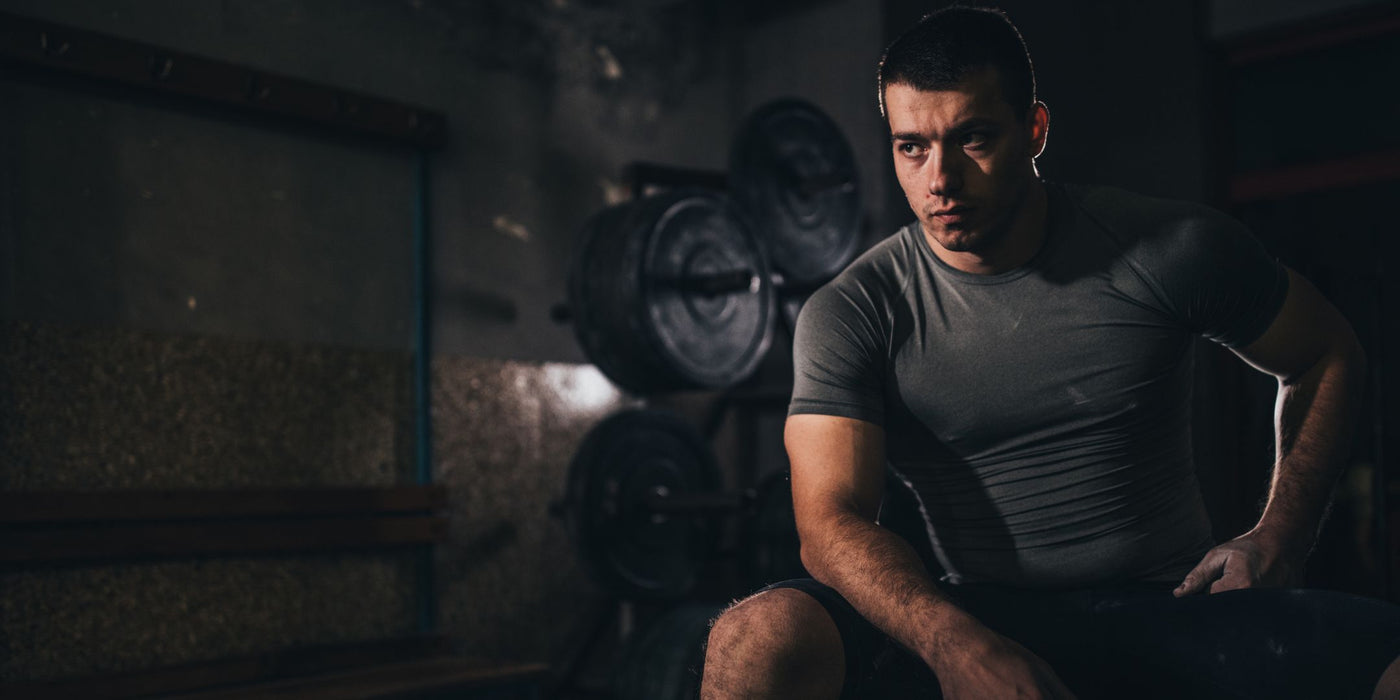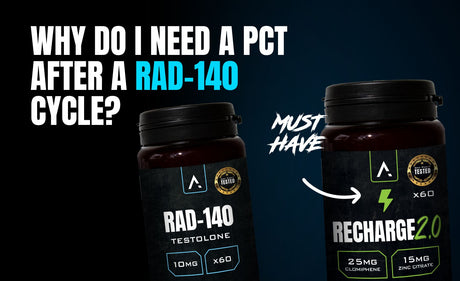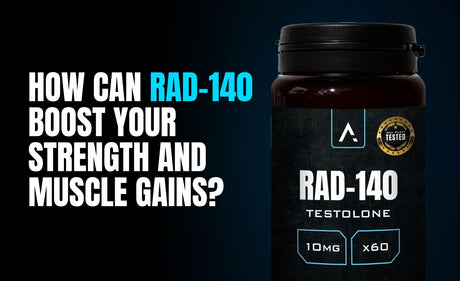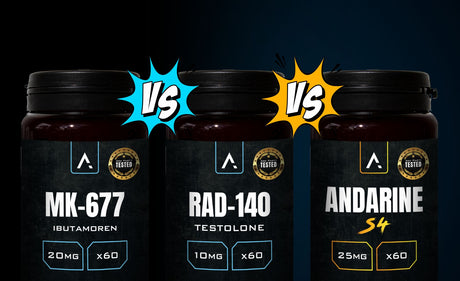Introduction
What is Turkesterone?
Turkesterone is a chemical constituent of the plant Curcuma xanthorrhiza and is a well know phytochemical with anticancer, antioxidant, anti-inflammatory and chemopreventive properties. There are several studies showing that turkesterone has potent tumor suppression properties in many different types of cancer, including liver cancer. It's also a rising supplement within the bodybuilding community that is now renowned for significantly increasing muscle mass, accelerating fat loss, increasing endurance and, as an all-natural supplement, - doesn't require a PCT.
Let's take a look at Turkesterone and its awesome benefits!
So, what makes Turkesterone special?
Turkesterone is a phytosterol, also known as a plant sterol or stanol. Phytosterols are a class of chemical compounds that possess a steroid backbone and side-chain with a hydroxyl group on the 3-carbon of the cyclohexane ring. They are basically steroids derived from plants, and they work by lowering cholesterol in the blood. Plants naturally produce phytosterols for a variety of purposes in their natural defense system.
Turkesterone, in its isolated form, has been found to have anti-inflammatory properties and can reduce the production of pro-inflammatory cytokines by activated immune cells. This means that Turkesterone can act as an immunosupresant, minimizing the body's immune response. This is why Turkesterone makes a great PCT supplement - to help prevent suppression of natural testosterone production that typically happens during chronic use of AAS (Anabolic-androgenic steroids).
Turkesterone has also been found to have antioxidant properties, being able to produce superoxide anions and inhibit lipid peroxidation.
What the f**k is Superoxide anions and inhibit lipid peroxidation?
Superoxide anions and inhibit lipid peroxidation are chemopreventive and antioxidant properties. Chemoprevention is the use of chemical compounds to decrease the incidence or severity of tumors or cancer development in people who do not have cancer. Antioxidants are substances that inhibit oxidation, such as oxygen reacting with other compounds (food, plastics, gasoline).
This leads us onto our first awesome point!
Turkesterone & Cancer:
Is Turkesterone the first step towards a chemo pill?
Turkesterone is known as an inhibitor of protein kinase C (PKC) which means it inhibits mitosis, the division of cancer cells by blocking PKC. Research shows that turkesterone has anticancer properties against many different types of cancer including liver cancer.
Turkesterone has been proven to induce apoptosis in liver cancer cells. Apoptosis is the programmed death of abnormal cells in the body - in this case, cancer cells!
It also suppresses angiogenesis (the formation of new blood vessels by tumor cells.) This happens when tumor cells release proteins that encourage the formation of new blood vessels.
These effects of turkesterone on cancer cells are attributed to its antioxidant properties, inhibition of IL-1β (interleukin 1 beta) and up-regulation of p53 tumor suppressor gene. An animal study showed that tumor size was 67% smaller in the group given turkesterone than those given a placebo! It has also been shown to have chemopreventitive properties in a study where it prevented the development of preneoplastic lesions in mice from oral carcinogens which causes cancer cells to form in the mouth. In addition to turkesterone's cancer fighting properties, it also inhibits the COX-2 enzyme which reduces inflammation and leads to a reduction in pain. This is an absolute must for those who are at greatest risk of developing liver cancer – regular consumers of alcohol or hepatitis patients.
Turkesterone has also been shown to induce apoptosis* in prostate cancer cells, suggesting it can help fight other cancers and is a promising lead for anti-cancer drugs and future research will investigate its effectiveness against other cancers, especially in combination with anti-cancer drugs.
What is apoptosis *
Apoptosis, also known as programmed cell death, is a process to kill cells that are harmful or unnecessary. The cells that program themselves for apoptosis die in a sequence of stages. First the cell membrane becomes permeable and small molecules leak out. Then the energy within the cell decreases as the mitochondria starts shrinking. Finally, it breaks up into pieces called "apoptotic bodies" which are rapidly taken up by phagocytes ensuring their destruction.
Turkesterone For Bodybuilders:
Turkesterone & Obesity:
In animal studies using mice, Turkesterone increased endurance and helped protect against obesity as shown by a decrease in body weight, reduced white adipose tissue (WAT,) increased brown adipose tissue (BAT), and significantly improved insulin sensitivity.
Turkesterone has also been shown to help reduce abdominal fat; visceral adiposity; total cholesterol; LDL-C; and blood glucose. It works by increasing energy expenditure and fatty acid β-oxidation (the burning of fat for energy) by increasing uncoupling protein 1 (UCP1) which regulates the mitochondria of brown adipose tissue, leading to more heat generation from fat stores. It also decreases PPARγ activity so it can't convert excess lipids to storage.
Turkesterone has been shown to activate AMP-activated protein kinase (AMPK). The energy sensor in the cell! This activation results in increased mitochondrial biogenesis and fatty acid oxidation (fat burning) and decreased adipogenisis (the formation of fat cells/adipose tissue.) Similarly, it can also act as an inhibitor of fatty acid synthase (FAS) which is another enzyme involved in converting glucose into lipids.
Stamina & Endurance Improvements
Turkesterone has been found to increase stamina and endurance in athletes. This is great news for people like runners, cyclists, and swimmers. It improves stamina and endurance by increasing the lactate threshold. The lactate threshold is the point of exercise intensity at which lactic acid begins to accumulate rapidly in the blood. In a study done on male mice, it was shown that the mice given turkesterone were able to swim for longer periods of time than those in the placebo group.
Another study done on male rats showed similar results, noting an increase in endurance and energy (as demonstrated by less fatigue.) Turkesterone acts on the kidneys to boost glycogen synthesis so it's unsurprising that it can improve endurance. The more glycogen you have, the longer you're able to last without getting tired. This is especially important for athletes who are required to perform at their peak during all-day tournaments or endurance athletes.
Turkesterone has been shown to enhance endurance in athletes by increasing power output and blood glucose levels. This, when combined with turkesterone's effect on muscle strength [as previously mentioned] can help increase physical performance during all-day tournaments or endurance sports where more than one game must be played back-to-back.
Increased Muscle Mass
It's well known that Turkesterone can massively increase muscle mass...but how does this work?
Turkesterone helps muscles grow by increasing protein synthesis. This is done by inhibiting the ubiquitin-proteaasome pathway (UPP.) The body normally uses this pathway to degrade old or damaged proteins. By inhibiting it, Turkesterone reduces the rate at which muscle tissue is broken down and increases the rate at which it is built up.
Turkesterone also increases the levels of anabolic hormones in the body, such as testosterone and IGF-1. This hormone has previously been shown to directly increase muscle mass, so it's no surprise that the combination of increased IGF-1 and reduced cortisol makes for some crazy gains in strength & power.
It can also increase cell proliferation (the development of new muscle cells) and decreases cell apoptosis (the death of existing cells.) This combination keeps the ratio between muscle fibers and fat steady so that you still enjoy your gains. There's no point in increasing muscle mass if it all turns to flab!
Turkesterone & Testosterone
Turkesterone has also been shown to increase testosterone levels by approximately 30% over the course of 8 weeks. Testosterone is an essential hormone for both the development and maintenance of skeletal muscle mass. The more of it, the more muscle you'll build and maintain.
Turkesterone also has a similar structure to testosterone itself. This means that it can block or mimic the binding of testosterone to muscle cells so that your body thinks it has enough total testosterone in circulation even if it doesn't have any at the time!
As demonstrated by the studies done on male rats, turkesterone can increase testosterone by up to 260%. While high doses of turkesterone are never recommended for bodybuilders who are looking to maximize their gains, it is possible to take advantage of this herb's effects without having to worry about estrogenic side-effects. Hands-on experience from users suggests an increase in lean mass after using turkesterone. For bodybuilders who are cutting, this means you're able to keep up your workout intensity and train harder for longer. For those looking to bulk up, turkesterone can help you put on more mass faster than ever before.
Bodybuilding Stack Turkesterone + HGH = Power & Size!
Turkesterone has shown some amazing results in studies on rodents, but what happens when you stack it with human growth hormones? A study was done to answer this very question, adding human growth hormone injections into the mix.
Results showed that after 8 weeks of Turkesterone use and HGH, muscle strength increased by 56% on average. Also during these 8 weeks, fat mass decreased by 18.6%! This study shows the potential for turkesterone to really work wonders for weight lifters and athletes. So why not stack turkesterone with human growth hormones to see what kind of results you can get?
Accellerated Muscle Mass & Fat Loss
In one study, turkesterone was found to have a potent anabolic effect on muscle tissue. It affects muscle hypertrophy by modulating the activity of satellite cells which play a major role in muscle regeneration following injury or exercise-induced micro-damage. For this reason, bodybuilders have been using turkesterone because courses lasting 8-12 weeks were shown to significantly increase lean body mass and decrease fat mass with no adverse events reported even at relatively high doses. This suggests that turkesterone should be safe to take for extended periods.
Turkesterone has been used as a dietary supplement for various non-skeletal disorders such as blood lipid profile, immunomodulatory and antioxidant activity, but there's no clear evidence that it does great things for any specific diseases or health conditions.
Sciencey Stuff
Want some sciency nerd info on how it works? Turkesterone, a pentacyclic triterpene derivative of 20(S)-protopanaxadiol (leukotriene B4), and its gallate ester (turkesterol) are highly cytotoxic to the liver cancer cell line HepG2. In addition, turkesterone binds to DNA with high affinity and induces apoptosis through the generation of reactive oxygen species (ROS). This has been attributed to its chemical structure containing several functional groups such as an alkyl chain that provides rigidity, resistance to oxidation, and hydrophobic properties; an epoxide group for redox activity; and a conjug diene system capable of electron delocalization. It has been shown that turkesterone modulates the activity of many proteins through inhibition or activation, including antiapoptotic proteins (e.g., Akt) and proapoptotic proteins (e.g., Bad).
As mentioned earlier, Turkesterone induced apoptosis* through an oxidative stress mechanism utilizing caspase 9 and 3 but not caspase 8. The mitochondrial membrane potential was lost by turkesterone treatment due to decreased ATP levels and increased ROS production which resulted in cytochrome c release from mitochondria into cytosol and activation of caspase 9 and 3 for cellular death cascade.
It is interesting that while several other compounds such as curcumin and resveratrol also induced apoptosis in cancer cells, they failed to do so for normal cells. Turkesterone is the only compound that induces apoptosis more significantly in cancer cells than in normal cells.
Typical Doseages
Typical dosages of turkesterone is between 100mg and 500mg per day. For muscle mass and strength gains, most studies reported good results with 200 mg and 400 mg daily doses taken in two different steps (e.g., morning and evening).
👆🏻 Important: Do not exceed recommended dose. Do your own research and experimentation on what dose works best for you and consult with a medical professional prior to taking.
Side Effects
Turkesterone is not known to have any negative side-effects when used topically or orally. In mice injected with human tumor tissue subsequent to oral ingestion of turkesterone there were no signs of toxicity up to 7500 mg/kg bodyweight , with peak plasma concentrations achieved within 0.5 hours of ingestion.
However, turkesterone may have some negative effects when administered at high dosages (not recommended for obvious reasons), which include: decrease in weight gain, reduction of sperm count and motility, lethargy and increase of liver enzymes.
Conclusion
Is Turkesterone right for me?
To conclude, Turkesterone has been shown to increase lean body mass and decrease fat mass, while not having any adverse events reported even at relatively high doses. It is important to notice that, although the number of studies are limited, tons of results and users around the world love it.
If you're looking for an all natural steroid / SARM or other PED alternative - Turkesterone is probably your answer!










